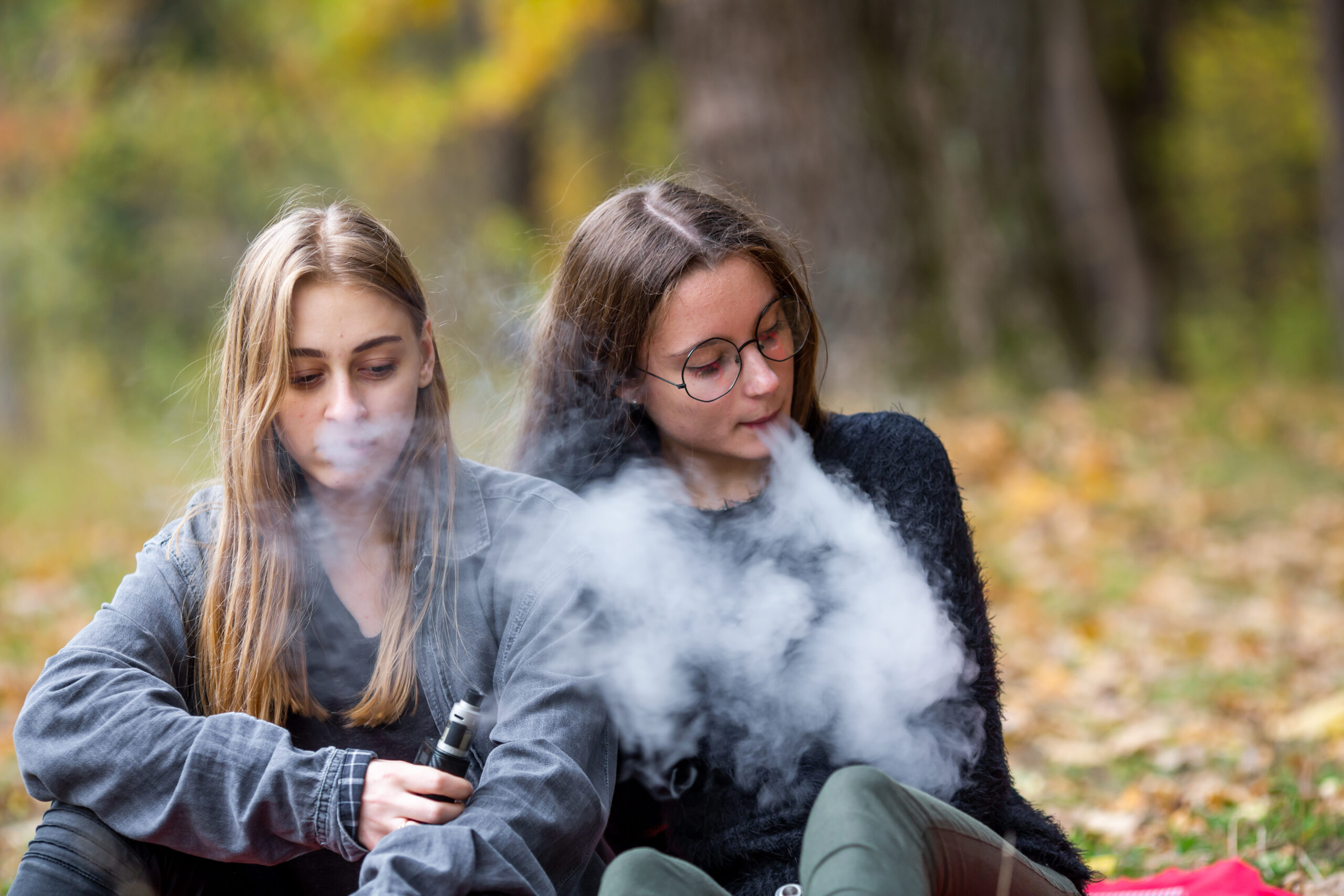latest
Young adults using vapes more likely to be anxious and lonely, study finds
The study of university students found that vape users were also more likely to experience insomnia than non-users
“Vaping impacts all areas of physical and mental health. Poor sleep not only affects a young person’s daily functioning but, over the longer term, increases the risk of developing heart disease and diabetes." Dr Simon Evans, neuroscience lecturer, University of Surrey
Young users of vapes are more likely to experience anxiety, loneliness and insomnia, a study of students has found.
Researchers from the University of Surrey looked at a group of young adults in England and found that vaping “significantly impacts sleep quality and anxiety levels”. Almost all the participants in the study who used vapes reported clinically significant symptoms of anxiety. They were no more likely to have symptoms of depression than non-users, however.
The finding coincides with an announcement by the chancellor, Jeremy Hunt, of a levy on vaping products to be paid on imports and by manufacturers of vapes in an attempt to make the habit unaffordable for children. The tax will be levied on the liquid in vapes, with higher duties for products with more nicotine.
Vapers consume twice as much alcohol as non-vapers
The study, which was published in Healthcare, analysed 316 students, including 49 who regularly used a vape. The participants had an average age of 20 and the majority were women. They were analysed using clinical tests, which included mental health assessments, a measurement of alcohol use and a measurement of sleep quality.
The results showed that regular vape users had 15% increase in insomnia symptoms over non-users, with three in four having clinically significant symptoms.
All participants reported on their sleep using the Pittsburgh Sleep Quality Index (PSQI), which measures sleep duration, latency, efficiency and disturbances.
Researchers also found that vapers consumed twice as much alcohol each week as those who did not.
The study is the first to assess the impact of vaping on loneliness and rumination (which refers to repetitive thinking and dwelling on negative feelings). It found that both were more common in the young adults who vaped.
Dr Simon Evans, a neuroscience lecturer at Surrey and study author, said the link between vaping and anxiety was “disturbing” and that it could become “a vicious cycle of using a vape to soothe anxiety but then being unable to sleep, making you feel worse in the long run.”
Many young people, he said, “are unaware of or simply downplay the dangers of such products, believing that something that tastes ‘fruity’ could not be harmful. This is not the case as the nicotine contained in the products is known to negatively affect brain development and may induce behaviours that increase the risk of developing substance abuse issues.”
He added: “Vaping impacts all areas of physical and mental health. Poor sleep not only affects a young person’s daily functioning but, over the longer term, increases the risk of developing heart disease and diabetes.”
People with anxiety may be self-medicating with vapes
The study was not, however, able to determine the direction of causation, though the authors suggested that people with anxiety might be more likely to use vaping to self-medicate. They added that action to improve mindfulness, and reduce rumination and loneliness, may make people less likely to take up vaping.
The number of people of all ages who use vapes has grown rapidly over the last decade to approximately five million.
The charity Action on Smoking and Health (ASH) estimates that about 11% of 17-24 year-olds regularly use vapes. One in five secondary school children has used a vape, ASH said, rising to two in five among 18-year-olds.
The government has introduced a ban on the sale and supply of disposable vapes. It has also introduced plain packaging and restricted the flavours available, because of evidence that fruity flavours and colourful packets are designed to appeal to children and young people.
FCC Insight
When vapes first came on the market, they seemed like a promising way to help people stop smoking, because they provided a nicotine hit without the health risks attached to cigarettes. Since then, however, vaping has been taken up enthusiastically by a cohort of young people, and this study suggests there may be a connection between vaping and conditions such as anxiety and insomnia. At the moment it is impossible to know which way the causation goes, but there is reason to be concerned that the addictive nature of vaping may be causing a vicious circle in which withdrawal symptoms such as anxiety and insomnia lead to increased use.
